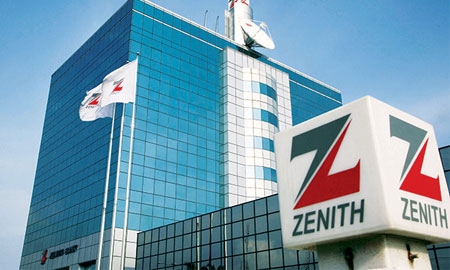The banking sector experienced a massive meltdown in 2008, but the regulatory actions taken by the Government and the Central Bank of Nigeria (CBN) enabled the sector to emerge even stronger than ever before. Can the sector maintain this growth in the short-term?
Will it be sustainable in the short run? Yes. The central bank is working as a ‘godfather’, trying to ensure that the banks are well-protected. It has done very well and it ensures that banks put certain policies in place so they do not go down the wrong direction.
We had a very bad period between 2008 and 2009, up to about 2010. And of course the CBN luckily came on board in 2009, in the midst of the economic problems. The banks had to go through a stress test, which resulted in a couple of banks being identified as systematically important, although they had problems and their CEOs had to be asked to leave. After that, about 21 banks remained and they are doing very well.
The Central Bank of Nigeria has undertaken a couple of measures to ensure that banks remain very strong. One of them is the establishment of the Asset Management Corporation of Nigeria. If you recall, some of the banks’ balance sheets were carrying some bad assets. They set up AMCON and an AMCON Resolution Fund, where the banks and the Central Banks contribute a certain percentage of their balance sheet to a sinking fund, to take over some of the bad assets in the banks. All of the banks have had to move some of their bad assets to AMCON.
To that extent, I would say that the banks’ balance sheets have been cleaned up substantially. As a result, 2012 turned out to be the best year that any bank in Nigeria had in its history.
Mr. Onosanya of First Bank is in favour of self-regulation and deregulation. The global economic downturn was mainly caused by deregulation. In your opinion, how do you strike the balance between regulation and deregulation? Does Nigeria have that balance?
As far as I know over history, Nigeria’s banking and financial system has been regulated. It has paid off for the country. In my view, the Nigerian banking sector appears to be the most regulated banking sector in the world at present. If deregulation has not helped America, Europe or the UK, and all of them are beginning to drift towards some sort of regulation, and if we are regulated, then why should we be contemplating deregulation? I would not subscribe to that.
One of the causes of the 2008 meltdown was the corporate governance or lack thereof. This has to come from within the organisation. What is Zenith Bank doing to implement good corporate governance?
This bank has been operating for 22 years, and it has been run since its establishment based on strong risk management and corporate governance. At the time we were established, there were 120 banks, and today there are only about 21 banks. Out of the banks that exist today, we rank at either the best (number one) or at worst number two, using any parameter to assess a bank today in Nigeria. To have achieved that, we have run this bank with the highest level of governance, and we also deserve some credit for that.
Zenith Bank is a great success story, having been here for 22 years and you have managed to survive through three or four meltdowns. But you have to look around and see what is going on around the world at the moment in the banking and financial sectors. Would you say that your strategy for 2013 will be a bit more cautious, or aggressive?
With our capital liquidity ratio at over 30 percent today, a couple of analysts would tell us that we are not employing our assets well, with a balance sheet that shows that the company holds 40 percent of federal bonds and treasury bills, and another 40 percent in loans and advances. We have always been a very conservative institution, and we will remain conservative. We are not going to be overly aggressive.
But at this time, you are beginning to see that yields from treasury assets are beginning to drop and treasury bills are dropping from 13-14 percent to almost 9-10 percent, so we will need to start taking on more risks, but not very aggressive risks that will create problems for the bank. I think we need to open up a little more and then increase our risk a little, but we are not going to be overly aggressive.
The next milestone is rendering the economy cashless. That will increase transparency and accountability in the sector, and most importantly it will reduce the unbanked population. How is Zenith Bank contributing to this?
MR. G. EMEFIELE:
Zenith has no choice but to join the league of banks in making the Central Bank cashless policy work. We have participated immensely in it, and we have employed a lot of electronic channels like ATMs and POS terminals. We have almost not opened any branches in the country and we have decided to drive our business and volume by using electric alternative channels to do business. If you look at the records, Zenith ranks as the leader in the deployment and volume of transactions via electronic channels today.

0 COMMENTS